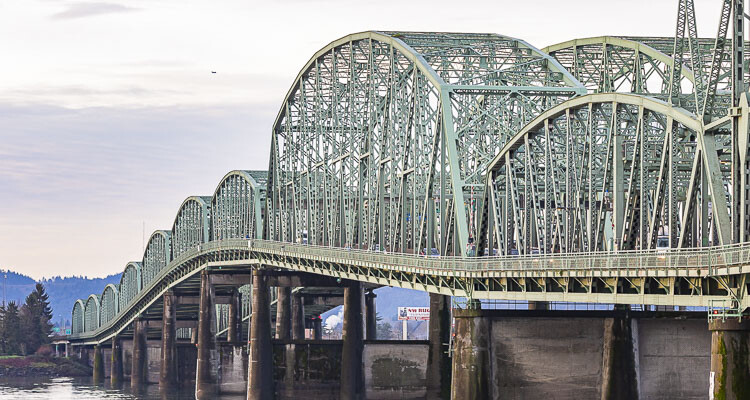
Bill passed in the face of Republican opposition that said it lacks guardrails around toll revenue and will hurt southwest Washingtonians
TJ Martinell
The Center Square Washington
The Washington Legislature passed a bill allowing tolling on the Interstate 5 Bridge spanning the Columbia River between Vancouver and Portland in the face of Republican opposition that said it lacks guardrails around toll revenue and will hurt southwest Washingtonians.
“There is distrust by many people in southwest Washington about how these funds are going to be used,” Rep. Ed Orcutt, R- Kalama, told colleagues on April 18. “I agree we need that bridge. I’ve driven over that bridge, it does need to be replaced. No question about it. But we need to earn the trust of the people in southwest Washington.”
SB 5765 is intended to help the states of Washington and Oregon generate a portion of the revenue necessary to replace the more than century old I-5 Bridge.
Tolling would only be charged on the current bridge and the replacement bridge when it is eventually built. The Washington and Oregon Transportation Commissions would set the toll rates. It would also be illegal to extend Oregon’s tolling system on Interstate 205 into Washington state’s section of that road.
As passed, the bill stipulates that toll expenditures are subject to appropriation by the Legislature and can only be done for specific reasons, such as repaying debt or covering the operating costs of the toll facility.
One failed amendment would have further limited the expenditure of toll funds to covering the facility’s operating costs and repayment of debt, while another unsuccessful amendment would have limited toll collection to the replacement bridges.
Much of the opposition to the bill focused on how the tolling would impact Clark County residents who commute to Oregon and are subject to the state’s income tax. One failed amendment would have exempted Washington residents who pay the Oregon income tax from paying the I-5 toll. Prior to 2020, only seven of Oregon’s 36 counties paid more to the state in income taxes than Clark County.
“They shouldn’t be doubled taxed,” Rep. Greg Cheney, R-Battle Ground, told colleagues on April 18.
Another failed amendment concerned an existing agreement between Clark County Transit, or C-Tran, and Tri-County Metropolitan Transportation District of Oregon, or TriMet, which grants TriMet eminent domain authority in Washington state within C-Tran’s jurisdiction in order to expand its light rail system.
Orcutt said the contract has been perceived by local residents as “an assault on property rights. That’s not good for the people of southwest Washington. It’s a precedent that should have never been set.”
Also in favor of the amendment was Rep. Jim Walsh, R-Aberdeen, who said “Let’s keep the state border clean. It is a matter of local control, and ceding local control to an entity in another state is not good policy.”
Another failed amendment would have required the toll rate be lowered to a level necessary for the bridge’s maintenance and preservation once the bonds to pay for the bridge have been fully paid off.
SB 5765 has been sent to Gov. Jay Inslee for signing.
This report was first published by The Center Square Washington.
Also read:
- Rising fuel prices could impact road trip plans for WashingtoniansAccording to the American Automobile Association, as of Friday, Washington state drivers are paying an average of $4.67 a gallon for regular unleaded gas – 34 cents higher than a month ago.
- Overnight lane closures on southbound I-5 in Battle GroundWashington State Department of Transportation maintenance crews will close the left two lanes on southbound I-5 April 23-25 to fill cracks in the roadway with melted rubberized material
- 40 Vancouver single family homes in IBR crosshairs plus 35 floating homes on Hayden IslandPublic Records show who is at risk of losing homes and business locations in the proposed Interstate Bridge replacement project.
- Target Zero: April is Distracted Driving Awareness MonthLocal law enforcement agencies, working with the Target Zero campaign, will be out this month trying to stop distracted drivers on Clark County roads.
- $400 million Francis Scott Key Bridge replacement highlights problems with I-5 Bridge projectInterstate Bridge replacement proposal compares poorly with Baltimore and other projects.









